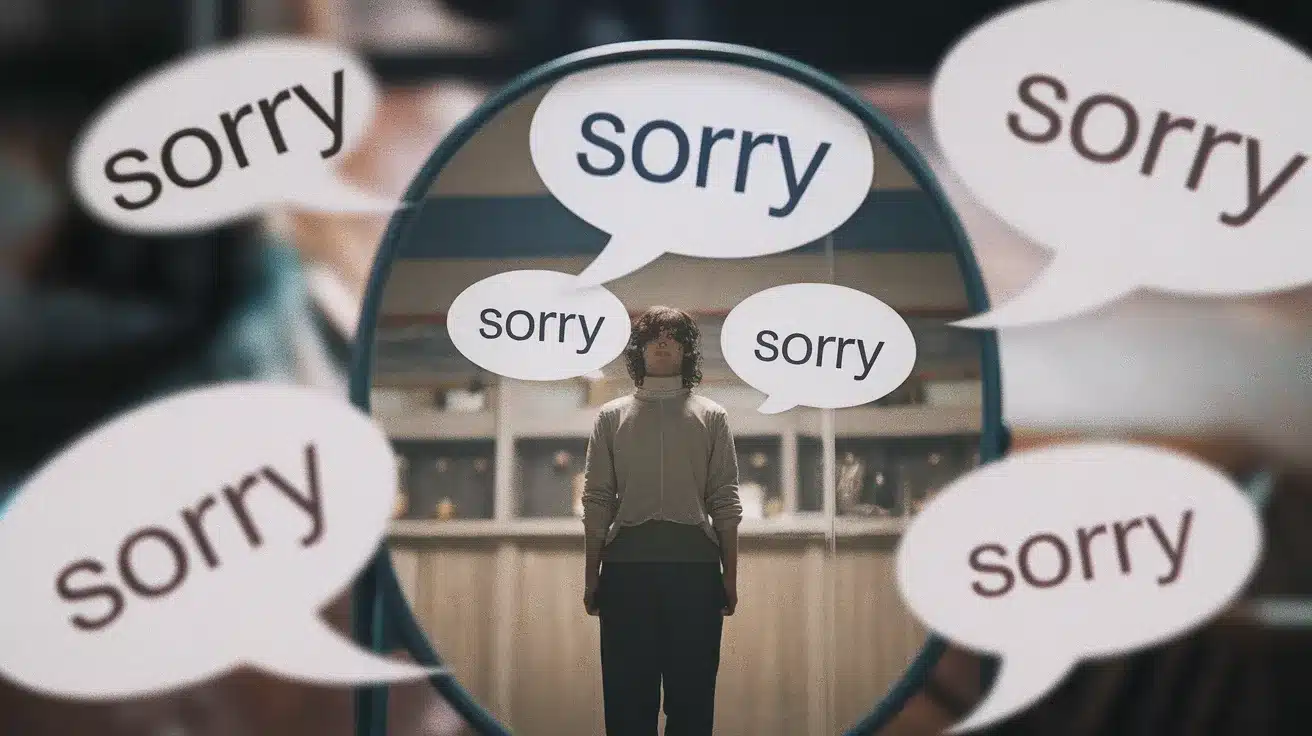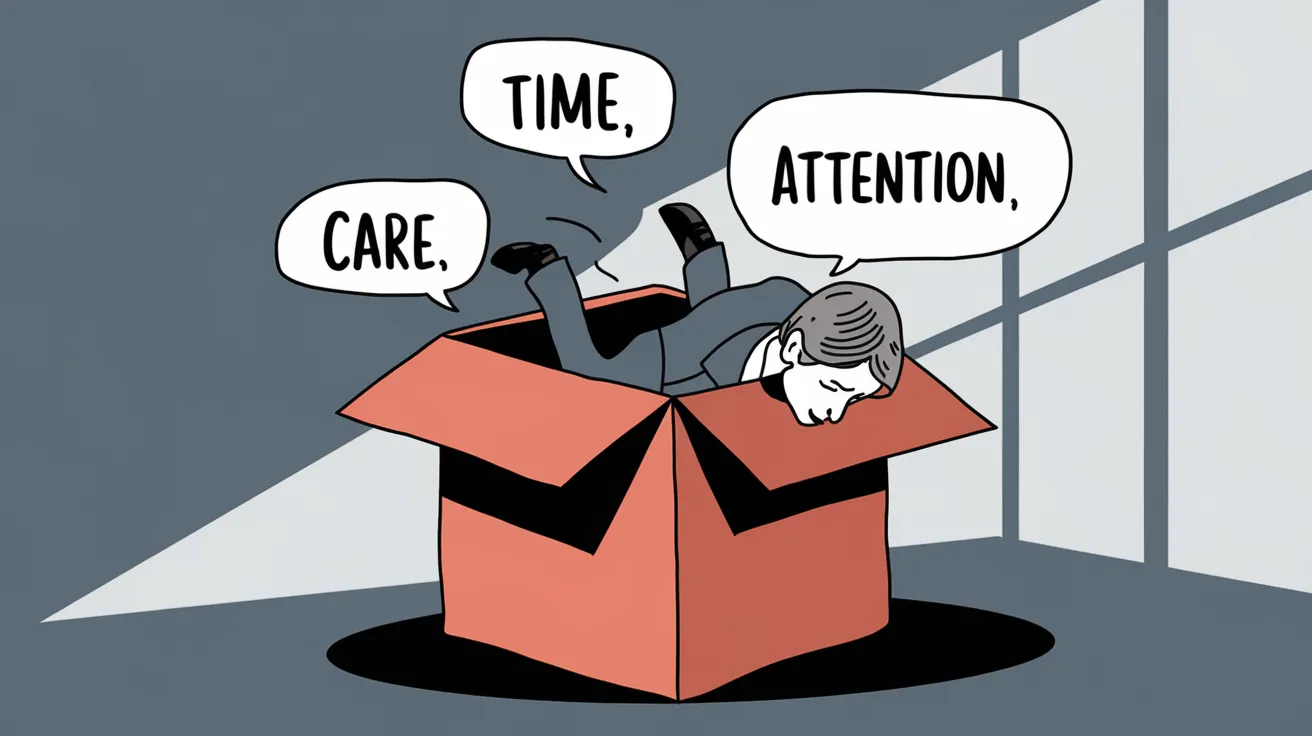Do you stay awake at night wondering if your relationship is still worth it? Many people struggle with this question, feeling stuck between hope and hurt. The truth is, some relationships just aren’t working anymore.
It’s hard to see the exit signs when emotions cloud your judgment. What you need are clear, honest markers that tell you when it’s time to leave.
Learning these signs can save you months—even years—of unnecessary pain and help you make better choices for your future.
In this blog, I’ll show you straightforward signs that indicate it’s time to end a relationship. These practical guidelines will help you make this tough decision with more confidence and less doubt.
Let’s look at these warning signals together.
The Inner Voice Test
Before seeking external advice, check what your gut is already telling you. Your body often knows the truth before your mind does.
Many people feel physical signs of stress when a relationship isn’t right. Pay attention to these feelings:
- Constant stomach knots when thinking about your partner
- Sleep troubles that started with relationship problems
- Tension in your shoulders that eases when they’re not around
Ask yourself these questions, your inner voice might be trying to tell you:
- “Why do I feel uneasy after every conversation?”
- “Why do I feel lonelier with them than alone?”
- “Why do I hide parts of myself from them?”
- “Why do I dread their calls instead of looking forward to them?”
Your inner voice rarely lies; If you need to convince yourself the relationship works, it probably doesn’t.
Remember: Your friends see your highlight reel, but your gut feels the whole movie. Trust it.
The Loop You’re Stuck In: 8 Signs You Need to Exit
If it feels like déjà vu, it’s not growth—it’s a warning.
1. Apologizing for Things You Didn’t Do
You say “sorry” for breathing too loud or choosing the wrong restaurant again. Your tongue has memorized apologies better than compliments. Each day starts with an apology and ends with one too.
The space between your words shrinks as you try to be smaller, less troublesome. Your friends notice you adding “sorry” to the start of every sentence. The weather turns bad? Sorry. Traffic is heavy? Your fault somehow.
- Do you apologize before sharing your thoughts?
- Have you apologized today for something ordinary?
- Do you feel at fault when someone else is angry?
You’ve become fluent in a language where self-blame is the only verb tense. This cycle teaches you to take blame that isn’t yours. Your worth shouldn’t depend on constant apologies.
2. Having the Same Fight Again and Again
Last month’s argument returns this week with the same words, same tears. It’s Groundhog Day, but nobody’s laughing. Nothing changes because nothing can change this way.
The script is written: you raise a concern, they defend, voices rise, someone walks away. Two days of silence follow, then fake peace until next time. You could record one fight and play it back next week- no one would notice the difference.
- The topics might switch but the pattern stays
- You can predict their responses word for word
- Resolution never comes, just temporary truces
Your relationship has one dance move, and it’s stepping on each other’s toes. The calendar changes but the fights don’t. True growth means new conversations, not reruns.
3. Walking on Eggshells Every Day
Your morning starts with a mental checklist: what might upset them today? Your home feels like an emotional minefield where comfort never visits. You plan your words, your tone, even your facial expressions.
The wrong look could ruin dinner. The wrong word could mean hours of tension. You live measuring each step, each breath. Even your laughter comes with a volume check—is it too loud? Too happy? Not happy enough?
- You track their moods like a weather forecast
- Certain topics are permanent no-go zones
- Relief comes only when they’re not home
The most exhausting job you’ve ever had is being yourself around them. This constant alert state drains your energy. Relationships should bring rest, not constant vigilance.
4. Trust Broken, Promises Remade
“It won’t happen again,” they say. Yet it does; over and over. Their promises have shorter lifespans than fruit flies. The betrayals might look different each time: a lie, a secret, a broken commitment.
But the pattern stays the same: broken trust, flowing tears, heartfelt promises, brief improvement, then repeat. The words change but the wounds don’t—they just stack on top of old ones that never fully healed.
Questions to ask yourself:
- How many “last chances” have you given?
- Do you trust their words anymore?
- When did you stop believing things would change?
Your forgiveness has become their free pass, not their wake-up call. False hope keeps you trapped in this cycle longer than truth would.
5. The Blame Always Shifts to You
The conversation starts about their behavior but somehow ends with your flaws. Your valid concerns perform Olympic-level gymnastics to become your failures instead.
You enter talks seeking solutions but leave questioning your sanity. Their mistakes moonlight as your character flaws. Their bad day? Your lack of understanding. Their forgotten promise? Your unreasonable expectations.
- “You’re too sensitive” becomes their favorite phrase
- Your feelings get labeled as overreactions
- You start to doubt what you know happened
They’ve rewritten the laws of physics where everything—even their choices—falls back onto you. This pattern slowly steals your truth. Your perceptions matter. Your feelings are valid evidence.
6. Crumbs of Affection After Days of Cold
They ignore you for days then bring tiny gestures of love—just enough to keep you hoping. You’ve learned to feast on emotional breadcrumbs while starving for real connection.
A kind word after a week of silence. A small gift after days of harsh treatment. These moments shine so bright against the dark that you cling to them as proof of love. You screenshot their rare kind text because it feels like capturing a shooting star.
- You treasure small kindnesses that should be basic
- Good moments feel like rare gems worth any price
- You’ve forgotten what consistent care feels like
Your love story has become a desert where any drop of water feels like rainfall. This starvation makes normal affection seem like feasts. You deserve daily bread, not occasional crumbs.
7. Your Needs Become “Too Much”
Your basic needs—attention, care, honesty—get labeled as demands. You’ve shrunk yourself so small you’re practically a footnote in your own life. You start each request with “I’m sorry to ask” because you’ve learned wanting anything means being difficult.
Your needs shrink until you hardly recognize what you want anymore. Birthday wishes become optional. Weekend plans always bend to their preference. Your voice grows quieter with each “you’re asking too much.”
Ask yourself:
- When did you stop asking for what you need?
- Do you feel guilty for having normal wants?
- Have you started hiding your feelings to keep peace?
You’ve become fluent in making yourself small—a language nobody should have to learn. Healthy love makes room for your needs without making them feel like burdens.
8. One-Way Effort Street
You plan the dates. You reach out first. You suggest solutions. You make compromises. Your back hurts from carrying a relationship meant for two sets of shoulders. You do the emotional work.
The relationship moves forward only when you push, like a car with just one working wheel. When you stop pushing, everything stops. The texts die mid-conversation unless you revive them. Anniversaries pass unmarked unless you circle the calendar.
- Count how often they initiate versus you
- Notice who apologizes after conflicts
- Track who remembers important dates
Your relationship has become a solo sport where you’re both the player and the cheerleader. Relationships need two active participants. Love isn’t meant to be a solo performance.
What Security Feels Like: The Relationship You Deserve
After seeing these warning signs, you might wonder what you should look for instead. A secure relationship feels completely different from the patterns above.
In secure connections, you can breathe fully. Your chest doesn’t tighten when your phone buzzes with their name. You speak without rehearsing. You share thoughts without bracing for impact.
True security means your needs matter equally. No scorekeeping, no owing, just two people who both show up willingly.
Signs of security include:
- Conflicts that lead to actual change, not just temporary peace
- The ability to say “that hurt me” without facing denial or blame
- Space for your growth that doesn’t feel like abandonment
- Consistent care that doesn’t appear only after you’ve suffered
- Equal sharing of emotional work—planning, checking in, remembering
Your past doesn’t have to be your future. Many people learn what healthy feels like only after experiencing what it doesn’t.
Your body knows the difference. When security replaces fear, your shoulders drop, your sleep improves, and your breathing deepens.
Unsure what safety in a relationship should feel like? Check out our guide on [Building Trust and Security: Feeling Safe in a Relationship].
Conclusion
Spotting these warning signs isn’t about giving up—it’s about waking up. The patterns we’ve examined reveal relationships that take more than they give.
Your gut knows the truth. When you find yourself stuck in these loops, remember that staying hurts more than leaving.
Healthy connections lift you up. They don’t shrink you down, blame you, or make you question your worth.
The choice to leave is hard. The first steps feel shaky. But on the other side waits a chance to find what you truly need—respect, care, and real partnership.
You matter enough to walk away from what hurts you. The right people will meet you halfway without being asked.
Trust yourself. You already know what you need to do.













